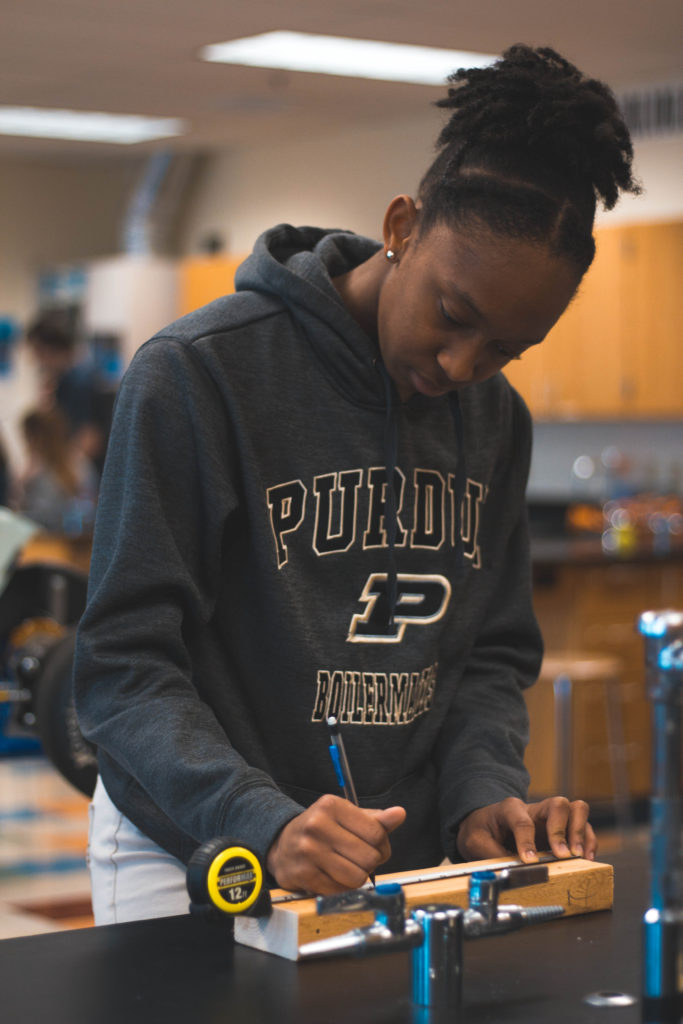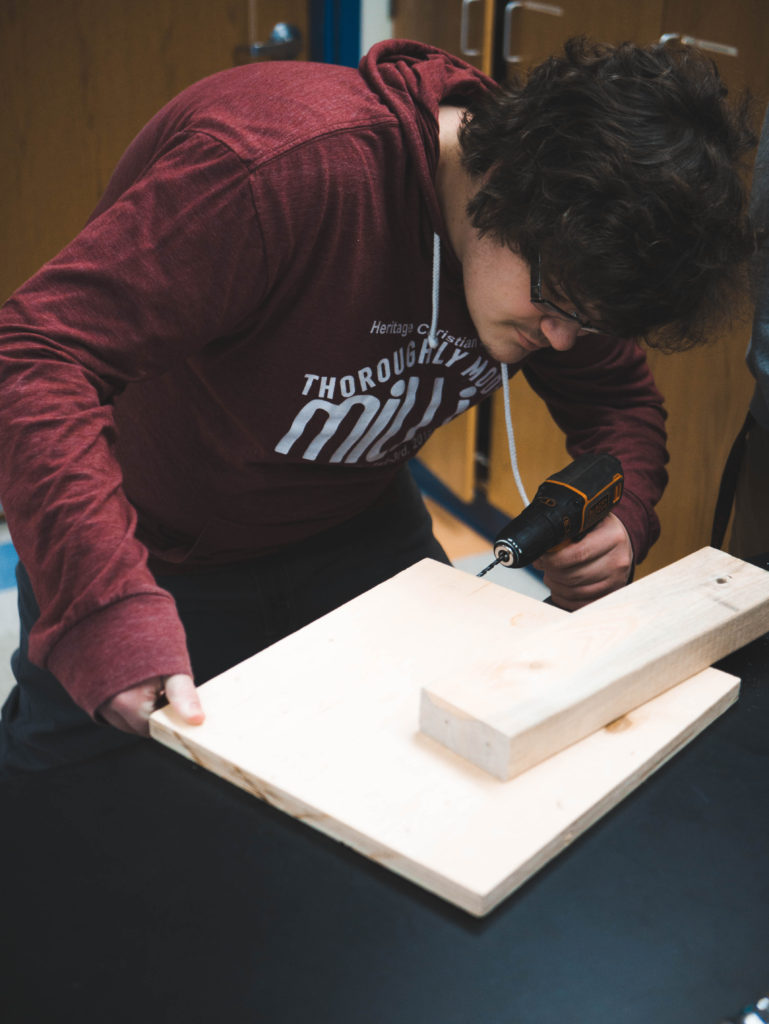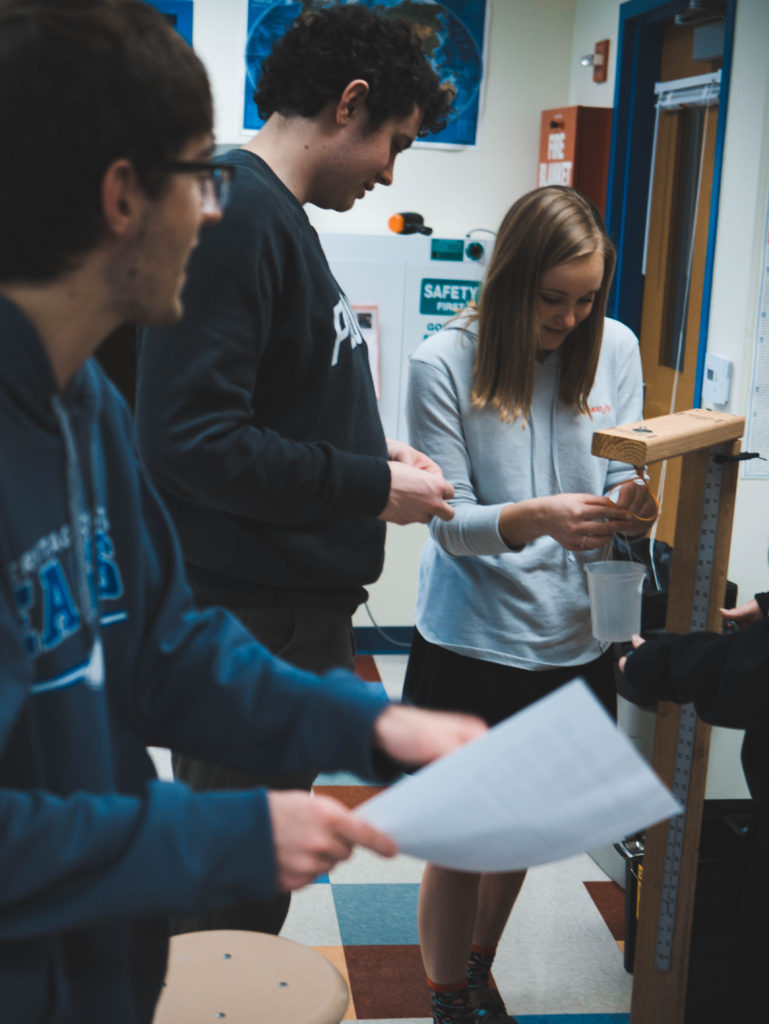‘Making’ that Leads to Manufacturing
Most young people today have minimal hands-on skills, or the ‘making’ skills that are the precursor to skills needed in many careers. Particularly concerning is the preparation of students for careers in manufacturing industries, where a recent study (The Skills Gap in US Manufacturing 2015 and Beyond, Deloitte, 2015) indicated that of the 3.5 million USA manufacturing jobs which will open in the near future, only be 1.5 million individuals will have the necessary preparation for these jobs – jobs that are critical to the US economic health. Moreover, modern manufacturing jobs are not the mindless, assembly line work of the past, but require considerable STEM skills, For example, consider the technician that runs a 13-axis Swiss turning machine to make artificial hips and knees – it is like flying a jet aircraft. ‘Making skills are even more important for those students that do not earn a BS/BA degree, which is currently 70% of high school graduates.
Basic making skills used to an important part of every young person’s education. It might have been learning from a dad or neighbor or older brother how to take care of the oil, spark plugs and brakes on the family car or fixing a leaky faucet. In middle school, all boys took shop and all girls took home economics. However, shop and home economics have been removed from most of the nation’s middle schools, and only a small percentage of high school students take the Career and Technical Education (CTE) pathway where some fraction of the CTE students learn more advanced manufacturing skills. Students today might appear technically savvy using their personal electronic devices, but they are deficient in the skills needed to make these devices (and thousands of more products that we use today) – skills that can lead to rewarding careers.
STEM education has also been adversely affected by this degradation of basic making skills. Many, perhaps most, students learn much better by doing, e.g. using a tape measure in a shop class provided a practical reason for learning fractions and doubling a recipe that used 2/3 cup of flour used multiplication of fractions – there are many more examples. The rush towards more abstract STEM courses like AP Physics and AP Chemistry provides important educational value for a few students; however, even these academic high fliers are adversely affected by the loss of basic making skills. In the university all too often one sees a 3.9/4.0 GPA engineering student standing in front of a tool box and not know the difference between a slotted and Phillips screwdriver – and these are the engineers who will design the bridges, automobiles and airplanes we all use. It is important for all of our students – academic high fliers and those students who will directly enter the workforce out of high school – have exposure to basic making skills.
The place to begin learning making skills is with wood. Hardware Store Science experiments are constructed from wood and plastic using hand tools and simple power tools like a drill and jigsaw. Students learn how to measure, cut and join pieces of wood and plastic to build their own test apparatus. It may not look like what one could buy from a scientific supply house, but more importantly, they made it with their own hands. The evGrandPrix go-kart continues this ‘making-to-manufacturing’ educational process, where students learn how to assemble a complex metal device and some adventurous student teams even machine some of their parts and weld them together. Finally, the student teams assemble electric motors, batteries and controllers to power their go-karts, introducing another level of making skills.
It is obviously not possible to turn back the clock to an era where all students learned the basic ‘making’ arts at both home and at school. However, the combination of Hardware Store Science and the evGrandPrix go-kart program provide a way to at least introduce basic wood, metal and electronic ‘making’ skills to today’s young people. Some students may be excited by ‘making’ and choose to expand these skills either as part of (i) an engineering technology class or (ii) via evGrandPrix or a robotics club or (iii) via full immersion in a CTE program, and a fraction of students will turn these beginning ‘making’ skills into a manufacturing credential (e.g. a NIMS welding certification). But even if students do not choose to expand these skills, an introduction to basic ‘making’ skills has value for all students.





